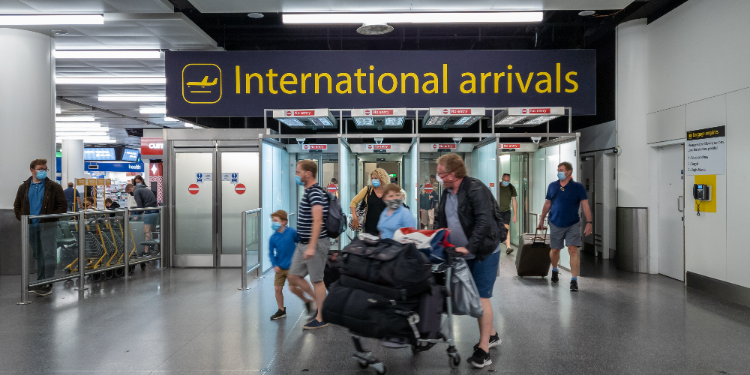
The Financial Times (FT) recently published a list of issues British expats have to consider before moving back to the UK. If expats are uninformed and unprepared, they risk facing “astronomical” visas, shipping, tax and housing costs in the process of returning home. By choosing the right time to move back, becoming tax-compliant and dealing with their overseas assets and benefits in an informed way, they can make their transition back home smoother and more affordable.
Choose the right timing
Both Simon Cahill, the financial planner consulted for the FT article, and other consultants stress the importance of good timing. First, expats should consider what time in the tax year will make them avoid hassles with Her Majesty's Revenue and Customs (HMRC). It's recommended to move at the beginning of a new tax year, which starts on April 6. This way, expats can avoid having to file a “split year” tax return, which has complicated regulations in order to cover both the current tax year and part of the previous one.
The financial advisory firm The Fry Group recommends the same. The firm highlights that expats should review all of their bank accounts, investments, properties and pensions before April. Clear Currency, a British company for currency exchange and transfers, states that expats need to notify the HMRC of their return as soon as they are back in the UK. They will need to fill in a self-assessment that details their employment status and all their sources of income. So, the returnee Briton needs to have all of this information sorted out before, not after, taking the plane.
Timing is also important to avoid some tricky regulations in the UK's tax laws. “Temporary residence rules,” citing from the Financial Times, consider expats liable for taxes on capital gains and some types of overseas incomes if they've been living abroad for less than 5 years. This rule is in place to prevent tax evasion, as some citizens feel tempted to move to a low-tax country for only a few months or years just to avoid paying taxes on large profits.
There are also non-financial reasons for choosing the right timing. For expat families with children, it's best not to move in the middle of a term (semester), so that the children don't struggle to adapt to their new school life and curriculum. The parents will need to contact local school authorities in advance to secure a place for the children.
Determine your tax status
Returning Britons need to take the Statutory Residence Test (SRT) to determine their exact tax status. According to the UK government's website, the test takes into consideration the amount of time the expat spent in the UK, any work they did in the UK during that time, and any connections they have in the country.
The rules are complex, and each expat's tax status is considered on a case-by-case basis. However, returnees should keep in mind that if they've lived abroad for less than 5 years (as mentioned above), and if they've lived in their main home in the UK for 91 consecutive days while still being non-residents, they will most likely need to pay taxes on part of their foreign earnings.
Recover your access to healthcare
When expats move back to the UK, they need to register with a General Practitioner in their area who is approved by the NHS. It's easy to find a medical practice in your specific region by consulting the full list provided on the NHS website. When registering, they need to provide evidence of their UK citizenship and residency, as well as their employment status. After registering, they can access non-emergency health services from the NHS.
Clear Currency and McCarthy Stone (a company specializing in the management of retirement communities) stress that expats also need to transfer all their medical records from abroad. These records should be translated into English if they are in a foreign language. It's also recommended to stock up on medication, especially essential medicines you use. This is because waiting lists to buy medicines can be long in some parts of the UK, and you might not be able to get them in the few days or weeks before you're registered with a GP.
Manage your UK and overseas pensions
UK expats who were receiving a pension from their home country while they were overseas need to update their records. Upon returning, they should contact the International Pension Authority and their local social security agency to update their status as being domiciled in the UK.
They also need to restart paying the National Insurance, which contributes to state benefits like the State Pension for senior citizens. If expats didn't pay the National Insurance during their years abroad, it could affect their State Pension. Andrew Bully, a technical director at Canada Life, advises expats in the Financial Times to buy additional pension years in case their State Pension has been affected.
If expats have an additional pension fund abroad, they should gauge whether it's worth transferring it to the UK or not. If they will lose too much because of currency exchange fluctuations, or if they will not benefit from tax breaks during the transfer, it's best to leave the pension fund in an overseas account, recommend specialists in the Financial Times.
For example, if your pension fund abroad exceeds the lifetime allowance of £1,073,100, you will incur taxes on it from the UK government. In that case, you can either leave the funds overseas or “apply for a lifetime allowance factor” to increase “the lifetime allowance for periods worked abroad,” recommends the tax adviser Rachel De Souza in the Financial Times.
Housing and assets
In 2015, the UK's Chancellor started levying taxes on the capital gains made on residential property owned by non-resident Britons, i.e., British expats. Expats are recommended to consult a tax adviser at least a year before moving back home. As Clear Currency says, an adviser will help you “restructure your assets to take advantage of tax efficiencies and limit capital gains tax on the sales.”
In many cases, it's best to sell your overseas assets, including houses and stocks, especially if they are in countries with lower taxes (eg, the UAE, which has no taxes). That is because once you are domiciled in the UK, you will start being taxed on your global income. Instead of “losing” part of their value through UK taxes, you can get more money by selling them in the low-tax foreign jurisdictions themselves. With the large sums made from these sales, you can start acquiring new assets in the UK.
If a returning expat needs to buy a new house, they need to reestablish their credit rating to get a mortgage. The advisory firm Experts for Expats states that a correspondence address in the UK (e.g., a family member's address) and a UK bank account, credit card, or mobile phone plan can help you maintain a local credit history. It's also advised to save a deposit of at least 25% because mortgage lenders are reluctant to lend large percentages to people who haven't been residents for a long time.
Post-Brexit and post-Covid changes
Many British expats might have left the country before 2016. Since then, a lot has changed in the country's laws because of Brexit, and more has changed in the job market and cost of living since the pandemic. Some expats might face a reverse culture shock in adapting to their home country again.
Some British expats might need to apply for visas for their family members (e.g., spouses) who are not UK citizens. Since Brexit and the humanitarian crisis in Ukraine, the processing time for family visas has increased to 24 weeks (estimation given by the UK government). Expats should apply early and be patient. They should also keep some funds for legal fees in case they need a lawyer's help to go through all of the red tape.
It's not only visa processing time that has become longer. Indeed, transferring funds, currency exchange, and international shipping now cost more time and money than a decade ago. Experts for Expats warns that shipping your belongings back home now requires significantly more paperwork (and the associated fees) than it did prior to Brexit. The global supply chain crisis has exacerbated this situation.
Consumer price inflation in the UK currently stands at 9.4%. Depending on the country you're relocating from, you might find it higher or lower. Returning expats should budget accordingly. For example, a British expat returning home from Mauritius, where inflation stands at 11.4% in 2022, will find the UK's situation slightly better. On the other hand, a Briton returning from the UAE, where inflation is 2.5%, will find it harder to adjust.
Last but not least, expats should also psychologically prepare themselves to deal with reverse culture shock. After many years abroad, they might have grown unused to British culture – without even realizing it. Social norms concerning privacy, personal space, politeness, etc. can vary a lot between the UK and other countries. For example, a Briton who has just returned from the United States might, at least at first, find it strange to no longer need or be able to engage in small talk with service workers.



















